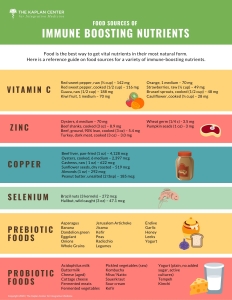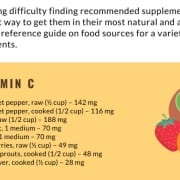Are You Dying For A Good Night’s Sleep?
It is estimated that over 70 million people suffer from a chronic sleep disorder in the United States, impacting not only the individual struggling to get a good night’s sleep but potentially all of us. It is conservatively estimated that more than 91,000 car accidents resulting in 800 deaths and 51,000 injuries each year are the result of driver fatigue.
And here’s another thought that might keep you up at night
One of the most common medical responses to helping you sleep may actually be putting your health at risk. About 4% of U.S. adults use a prescription sleeping aid in any given month. Yet taking as few as 18 sleeping pills a year increases your risk of dying 3.6 fold compared to people not using them. Those who take a prescription sleeping medication more than 132 nights a year have a 6.6-fold increase of death and a 35% increased risk of developing cancer.
A better response?
Individualized treatment to discern the underlying cause of sleep loss.
Sleep deprivation is the most common sleep disorder.
Newborns need as much as 18 hours a day, while teenagers — the most notoriously sleep-deprived group — require nine to 10 hours. Adults should have between seven and eight hours a night of restful sleep, yet a 2013 Gallup poll found that as many as 40% of Americans get only six hours or less of sleep a night.
Sleep deprivation can exhibit as insomnia, taking longer than 20 minutes to fall asleep, multiple awakenings during the night with difficulty returning to sleep, early wakening, and shortened sleep due to demands of work or school. Whatever the cause, its long-term consequences on your health and well-being are the same.
In the short term, your mental performance and reaction time when chronically sleep-deprived are the equivalent of being drunk. And like the inebriated, the chronically sleep-deprived do not recognize the extent of their impairment. Lack of sleep compromises the normal functioning of your immune system, and long-term sleep deprivation causes your body and brain to be in a chronic state of inflammation, potentially leading to an increase in heart disease, stroke, obesity, chronic pain, ADD, depression, and anxiety. The problem is also bidirectional; conditions such as chronic pain, depression, and heart disease can cause sleep disturbance, which then worsens the underlying condition.
Questions? Give Us a Call!
So how sleepy are you?
If you think you may be suffering from sleep apnea or another type of sleep disorder, don’t put off seeking help. Being this tired is a potential danger to your own health as well as the health of others. One way to quickly assess your level of daytime sleepiness is the Epworth Sleepiness Scale. It takes about a minute to complete the test and should be part of any medical exam when someone is complaining of fatigue. A score of 10 or higher is suggestive of a significant sleep issue. At the Kaplan Center, we also utilize WatchPAT ONE, a recyclable Home Sleep Apnea Test (HSAT) to help us detect sleep apnea as well as providing markers for quality of sleep.
Here are some steps you can take right now to improve the length and quality of your sleep:
- Go to your room! Try to tuck in and rise around the same time each day.
- Move it! Regular exercise improves sleep and regular sleep improves exercise performance. The regular practice of yoga, especially in older adults, has been shown to improve the duration and quality of sleep.
- Cut caffeine. If you have a sleep problem, minimize or eliminate your caffeine consumption. Caffeine in all forms — tea, chocolate, energy drink or pill — disrupts sleep.
- Eat more fish. Eating fatty fish, salmon, and tuna appears to not only lower your risk of heart disease but also betters your sleep.
- Eat at regular intervals. When and how much we eat, as well as the types of foods we eat, impact our internal clock, called our circadian rhythm. While we are just beginning to understand the relationship between food and internal clocks, it is clear that the two are related and the consequences of eating at irregular intervals are obesity and increased risk for disease, in addition to disruption of your sleep.
- Cooldown to sleep sound. People may have trouble falling asleep because they have trouble cooling down their core temperature, which reaches its maximum typically around 3 pm. A warm room will exacerbate the problem. Temperatures above 75 degrees and below 54 degrees Fahrenheit can disrupt sleep. So what is ideal for sleep? The consensus is that a room temperature between 65 and 68 degrees is probably ideal; this will vary among individuals.
- Go dark. Light is a major factor that regulates our sleep-wake cycle. Light exposure at night not only disrupts our sleep but also increases our risk for obesity, high blood pressure, and possibly breast cancer in women.
- Keep it quiet. Any amount of noise starting at 30 to 40 decibels, a level between a whisper and a quiet conversation, begins to impact sleep quality. That said, people generally find the sounds of their usual environment relaxing. Sound can also be used to help with sleep. One study looking at patients suffering from a generalized pain syndrome called fibromyalgia found that music embedded with a specific sound frequency called Delta wave that pulsated between .25 to 4 Hertz improved the quality of patients’ sleep and decreased their pain symptoms.
- Meditate. Numerous studies demonstrate that the regular practice of meditation can improve the quality of sleep, as well as help in the treatment of anxiety disorders, depression, and chronic pain.
- Sample supplements. Some supplements that might help in getting a good night’s sleep include 5-HTP and melatonin. The FDA does not regulate supplements, so be careful that the supplement you purchase actually contains the substance and the amount of the substance stated on the label. Also, supplements are drugs and can have side effects and interactions with other medications. If you are taking medications on a regular basis, please check with your physician before taking any supplements.
For more information on identifying & treating sleep disorders click here.
We are here for you, and we want to help.
Our goal is to return you to optimal health as soon as possible. To schedule an appointment please call: 703-532-4892 x2
Note: This post was originally published in August 2014 and has been reviewed and updated for accuracy.












